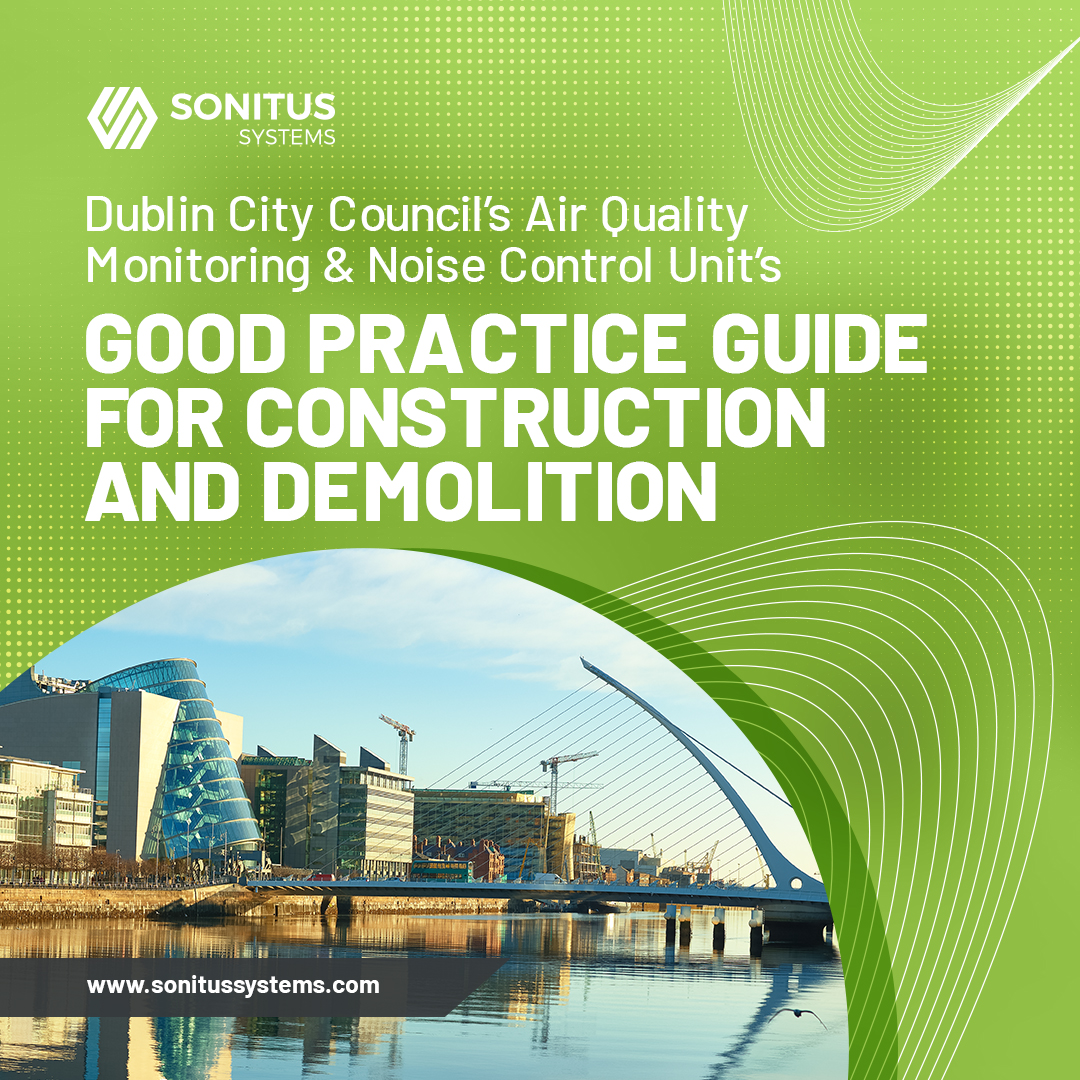Earlier this week the Air Quality Monitoring & Noise Control Unit of Dublin City Council published its long awaited ‘Good Practice Guide for Construction and Demolition’. This Guide has been produced with reference to the London Good Practice Guide: ‘Noise and Vibration Control for Demolition and Construction’ (2016), which was produced by the London Authorities Noise Action Forum.
It is important for all property development and construction project owners to be aware of the local environmental requirements that must be adhered to prior to the commencement of work on site. This applies to both construction and demolition works. A project plan must be developed, setting out steps to ensure compliance with local air quality and noise guidelines.
Section 6 of the Guide refers to monitoring of noise, vibration and air quality.
Noise & Vibration
As a first step, project owners must establish pre-existing levels of ambient noise by baseline monitoring or use of the noise maps. From that point, regular on-site observation monitoring and checks/audits must be carried out to ensure that BPM is being used at all times. Critically, site reviews must be recorded and these records made available for inspection at any time.
Furthermore, according to the Guide, noise and vibration must be monitored continuously during demolition, piling, excavation and sub and superstructure works at agreed locations and reported to DCC at agreed intervals and in an agreed format.
When monitoring locations for existing sites have been agreed with officers of Dublin City Council, they must remain in situ, and where additional monitoring is required, new locations must be agreed with Dublin City Council. The results of this monitoring must be forwarded to DCC’s Air Quality Monitoring & Noise Control Unit every two weeks. If a breach is recorded, the follow up action that took place to prevent any further breaches must be included in the report.
Air Quality
With regard to air quality monitoring for demolition and construction in Dublin, the Council’s procedures provide for continuous, real-time particulate (i.e. PM10 and PM2.5) monitoring along the site boundary. The location of particulate monitors must be agreed with DCC prior to installation, with reports of the monitoring made available upon request.
As specified in the above Guide, dust deposition monitoring must be undertaken using a methodology agreed in advance with DCC. For further information, download the Dublin City Council Air Quality Monitoring & Noise Control Unit’s ‘Good Practice Guide for Construction and Demolition’ here:
Sonitus Systems offers both the hardware and software for a range of environmental parameters on a continual basis, with real-time information available through our Sonitus Cloud dashboard. For more details on our indoor and outdoor noise and air quality monitoring products and services, please contact the team at https://www.sonitussystems.com/contact-us
